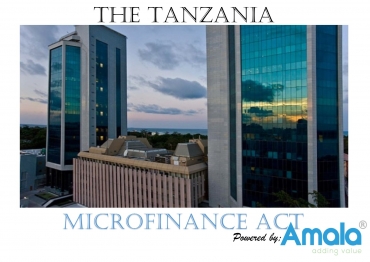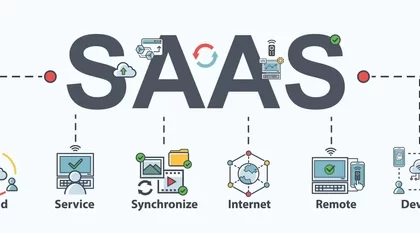In December 2018, the parliament of the United Republic of Tanzania enacted a Microfinance Act which seeks to clarify the framework under which microfinance institutions are governed, regulated, and operate. The Act provides for licensing, regulation and supervision of a highly segmented microfinance sector in Tanzania Mainland and Zanzibar. It concretized a commitment made by the Ministry of Finance and Planning and the Bank of Tanzania (BoT) to transform the microfinance sector through better integration and regulation. This was to be realized through the National Microfinance Policy 2000 (NMP 2000), however the implementation of the policy was unsuccessful, leading to its revision in 2017. The 2018 Microfinance Act was enacted “in order to operationalize NMP 2017” whose main objective was to create an enabling environment for the microfinance sub sector to contribute to poverty reduction.
Understanding the context and challenges for the microfinance sector
A microfinance regulatory framework is highly relevant for a country with high levels of financial exclusion and increasing involvement by non-bank financial services providers. Only 16.72 percent of Tanzania’s population is banked, and 27.85 percent is entirely financially excluded. Mobile money and microfinance have extended financial inclusion to almost half of Tanzania’s population. By 2017, 48.6 percent of the population was served by financial NGOs, mobile money, and other micro institutions. Almost half of Tanzania’s population was financially serviced by less formal financial institutions such as Savings and Credit Cooperatives (SACCOs), Savings and Credit Associations (SACAs), Rotating Credit and Savings Associations (ROSCAs) and other microfinance institutions (MFIs).
Introduction of the 2018 Microfinance Act
The aim of the Microfinance Act is to “license, regulate, monitor and supervise microfinance institutions” in the country. The Bill defines a microfinance company as “a financial institution licensed to undertake banking business mainly with individuals, groups and micro in the rural and urban areas of Tanzania Mainland and Zanzibar.” The nature of microfinance business undertaken by microfinance service providers includes receiving money through deposits, savings, and interest accumulated on borrowing; the provision of micro credit, micro savings, micro insurance, and micro housing finance; transfer and payment services; and financial education.
The Act structures microfinance businesses, categorizing them into four tiers that reflect their size, function, and potential for development:
· Tier 1 is comprised of deposit-taking institutions such as banks and microfinance banks;
· Tier 2, non-deposit-taking institutions such as those that offer credit;
· Tier 3, SACCOs; and
· Tier 4, community financial groups
What the Act requires of microfinance service providers
Microfinance service providers are expected to have a place or places of business with a ‘proper’ address subject to the approval of the Bank of Tanzania. Additionally, a service provider cannot open or close a place a place of business without the prior approval of the Bank of Tanzania. Failure to comply would be an offence subject to penalties. Should micro finance service institutions desire to transform their tier, they would have to meet the minimum capital and regulatory requirements corresponding with the different tiers. The categorization of microfinance service providers into tiers allows for the regulation and supervision of MFIs to be based on the nature of their microfinance business and their financial capacities.
Microfinance service providers are also expected to adhere to additional legislation such as the Anti-money Laundering Act and keep proper books of accounts in accordance to international reporting standards. Accounts should be audited by a qualified and registered auditor at least once a year, with these institutions disclosing their financial statements annually to the Bank of Tanzania.
The Role of the Bank of Tanzania
Part III of the Act vests the Bank of Tanzania with the powers and responsibilities to oversee and monitor microfinance service providers. The responsibilities include the issuing and revocation of licenses; and the inspection, monitoring, and evaluations of the performances of microfinance businesses. Bank shall issue licences to qualified microfinance service providers; inspect, monitor and evaluate the performances of MFI businesses; and undertake the assessment and issuing of approvals for transformations amongst other responsibilities. This section also vaguely says that the Bank should protect consumers of microfinance service providers (“ensure protection of consumers of microfinance service providers”). The Bank of Tanzania would also have extended powers to investigate the operations of microfinance service providers, inspect their books and records, and access information in storage rooms and safes on their premises.
Registration and licensing under the Act
The Law requires all microfinance service providers to be registered and licensed, exacting fines for institutions that do not adhere to this requirement. Fines range from 20 million and 100 million Tanzanian Shillings (U$8 703 – US$435 150) for Tier 1 and 2 institutions, and between 10 and 50 million Tanzanian Shillings (US$4 351 – US$21 757) for Tier 3 institutions.
To register as Tier 1 and Tier 2 microfinance service providers must provide:
· Particulars
· Place of business
· Certified copy of certificate of registration or incorporation
· Prescribed non-refundable application
· Other relevant information or documents which may be required by the Bank of Tanzania
To register as Tier 3, SACCOs must provide:
· Certified copy of certificate of registration issued in terms of Cooperative Societies Act
· Prescribed non-refundable application fee
· Other relevant information or documents which may be required by the Bank of Tanzania
To register as a Tier 4 (community financial group) micro service provider:
· Two copies of the constitution signed by all members
· Members resolution to form and register a microfinance entity
· Proposed organizational structure
· Letter of recommendation from associated ward or village
· Prescribed non-refundable fee
· Other relevant information or documents which may be required by the Bank of Tanzania
If applications are satisfactory the Bank is to issue a license which is immediately effective, and record the microfinance service provider in the registry. In the event of an unsuccessful application, the Bank is to issue a written explanation and the applicant given a chance to re-apply or appeal within 21 days. With the provisions of Section 12 and 13 of Microfinance Act, 2018. The Bank is vested with authority to monitor and supervise the entire microfinance business in Tanzania.
Amala App Suite brings you closer to the understanding of the regulatory and governing principle by implementing the system to your MFI and related small scaled Financial stake holders and will also guide you through in taking necessary steps in complying with the regulations.








